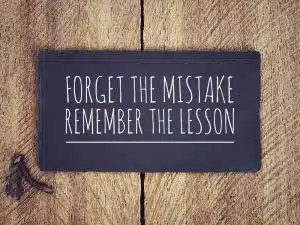
One of the key errors is rushing to fill positions without thoroughly evaluating candidates’ skills and experience. This haste can lead to hiring individuals who may not be the best fit for the establishment, resulting in subpar service and reduced customer satisfaction.
Additionally, new business owners might underestimate the importance of conducting thorough background checks and reference verifications, which can lead to hiring employees with questionable work ethics or a history of unreliability.
Another pitfall is overlooking the significance of employee training and onboarding, assuming that staff members will quickly adapt to their roles without proper guidance.
Consequently, this lack of preparation can lead to confusion and inefficiencies within the restaurant’s operations. Lastly, some new business owners may overlook the significance of creating a positive work culture, failing to recognize that a motivated and well-treated staff is essential for long-term success in the competitive restaurant industry.
By addressing these common hiring mistakes, new business owners can enhance their chances of building a dedicated and proficient team, crucial for ensuring the smooth functioning and success of their restaurant venture
Hiring restaurant staff: 7 mistakes to avoid
Hiring restaurant staff requires careful evaluation of candidates’ skills and experience to ensure a good fit for the establishment and customer satisfaction. Mistakes to avoid include rushing the hiring process, neglecting thorough background checks, and underestimating the importance of proper training and fostering a positive work culture.
1. Not advertising in the right places
Not advertising in the right places is a significant mistake that can hinder a business’s growth and outreach. When a company fails to target its advertisements effectively, it misses out on reaching its intended audience and potential customers. T
his oversight can result in wasted resources and limited exposure, leading to low engagement and ultimately hindering the business’s ability to expand its customer base.
By identifying the appropriate channels to advertise, such as relevant online platforms, local publications, or social media networks, businesses can maximize their visibility and connect with the right audience, increasing the likelihood of attracting new customers and driving sustainable growth.
Read more: Top 9 Websites to Hire Restaurant Staff
2. Unclear job description
An unclear job description can be a major stumbling block for businesses in the hiring process. When the job expectations and responsibilities are not clearly outlined, it can lead to misunderstandings between the employer and potential candidates, resulting in inappropriate hires and increased employee turnover. To avoid this mistake, businesses should craft comprehensive and precise job descriptions that detail the roles, responsibilities, required skills, and qualifications for the position.
Including specific information about the company culture and the potential for growth and advancement can also help candidates better understand the opportunity. Regularly reviewing and updating job descriptions as the company evolves will ensure that they remain relevant and accurately reflect the needs of the organization.
By providing transparent and comprehensive job descriptions, businesses can attract the right candidates who are genuinely interested and well-suited for the role, ultimately fostering a more productive and satisfied workforce
3. Rushing the hiring process
Rushing the hiring process is a common mistake that can have significant repercussions for businesses. When companies are in a hurry to fill vacant positions, they may overlook critical steps in the recruitment process, such as conducting thorough interviews and reference checks. This haste can lead to hiring the wrong candidates who might lack the necessary skills or qualifications for the job, resulting in a higher turnover rate and increased recruitment costs.
Moreover, rushing can prevent hiring managers from properly assessing candidates’ cultural fit and compatibility with the team, potentially leading to conflicts and decreased overall productivity.
To avoid this mistake, businesses should allocate sufficient time and resources for recruiting, allowing for a careful evaluation of applicants and ensuring that the right candidates are selected for the position. Taking a more measured approach to hiring will lead to a stronger and more cohesive workforce, contributing to the long-term success of the organization.
4. Forgetting to check references
Forgetting to check references is a critical oversight that can have serious consequences for businesses during the hiring process. References provide valuable insights into a candidate’s past performance, work ethic, and overall suitability for the role.
Neglecting to verify references may lead to hiring individuals with misrepresented qualifications or questionable backgrounds, which could prove detrimental to the company’s reputation and operational efficiency. By thoroughly checking references, businesses can gain a clearer understanding of the candidate’s strengths and weaknesses, ensuring a more informed hiring decision.
This practice not only helps in confirming the accuracy of the information provided by applicants but also assists in identifying potential red flags that might have otherwise gone unnoticed.
Therefore, it is essential for businesses to allocate the necessary time and effort to conduct reference checks to build a reliable and competent workforce.
5. Not offering a trial period
Not offering a trial period to new hires is a common mistake that can lead to challenges and mismatches in the workplace. Without a trial period, employers miss the opportunity to assess a candidate’s actual performance and fit within the company culture before committing to a permanent hire.
This can result in hiring individuals who may not be the best fit for the role or the organization, leading to potential productivity issues and a higher turnover rate. A trial period allows both the employer and the employee to gauge their compatibility, assess job skills, and identify any potential challenges or training needs.
By implementing a trial period, businesses can make more informed and confident decisions about extending permanent job offers, ultimately contributing to a more harmonious and successful work environment.
6. Not internally promoting
Not internally promoting employees is a mistake that can hinder a company’s growth and employee morale. Overlooking the talent and potential within the existing workforce means missing out on the opportunity to retain skilled and experienced employees who are already familiar with the company’s values, culture, and operations.
Failing to promote from within may lead to employee disengagement and a lack of motivation, as workers might feel undervalued and overlooked for advancement opportunities. Furthermore, this practice can create a gap between management and staff, affecting team dynamics and overall productivity.
By actively considering and promoting qualified employees from within the organization, businesses can foster a culture of loyalty, trust, and professional development, encouraging employees to invest their skills and commitment into the company’s long-term success.
7. Improper onboarding
Improper onboarding is a critical mistake that can have detrimental effects on a company’s new hires and overall organizational performance. When employees are not provided with a structured and comprehensive onboarding process, they may feel lost and disconnected from the company’s goals and values.
This lack of guidance can lead to a prolonged period of low productivity, as employees struggle to understand their roles and responsibilities. Additionally, improper onboarding may hinder the development of a strong company culture and lead to higher turnover rates, as new hires may not feel welcomed or supported in their early days with the organization.
To avoid this mistake, businesses should invest time and effort in creating an effective onboarding program that includes clear communication, job training, mentorship opportunities, and a thorough introduction to the company’s policies and procedures.
A well-executed onboarding process not only helps new employees integrate smoothly into the workplace but also sets the foundation for their long-term success within the organization.
Hire restaurant staff: find your dream team
Hiring restaurant staff can be a long-winded and sometimes stressful process. Unsurprisingly many new business owners want to get the recruitment phase over as quickly as possible, but this often leads to simple mistakes that can prove costly and result in either a miss-hire or turnover later down the line.
If you invest the time in curating the perfect job description, nail your interview process, and provide a unique onboarding with detailed training, you’re sure to minimize your staff turnover rate and build a dependable team who loves their jobs.
Lee Jones is a seasoned Business Finance Specialist with over two decades of invaluable experience in the financial sector. With a keen eye for market trends and a passion for helping businesses thrive, Lee has become a trusted advisor to countless organizations seeking to navigate the complexities of finance.


